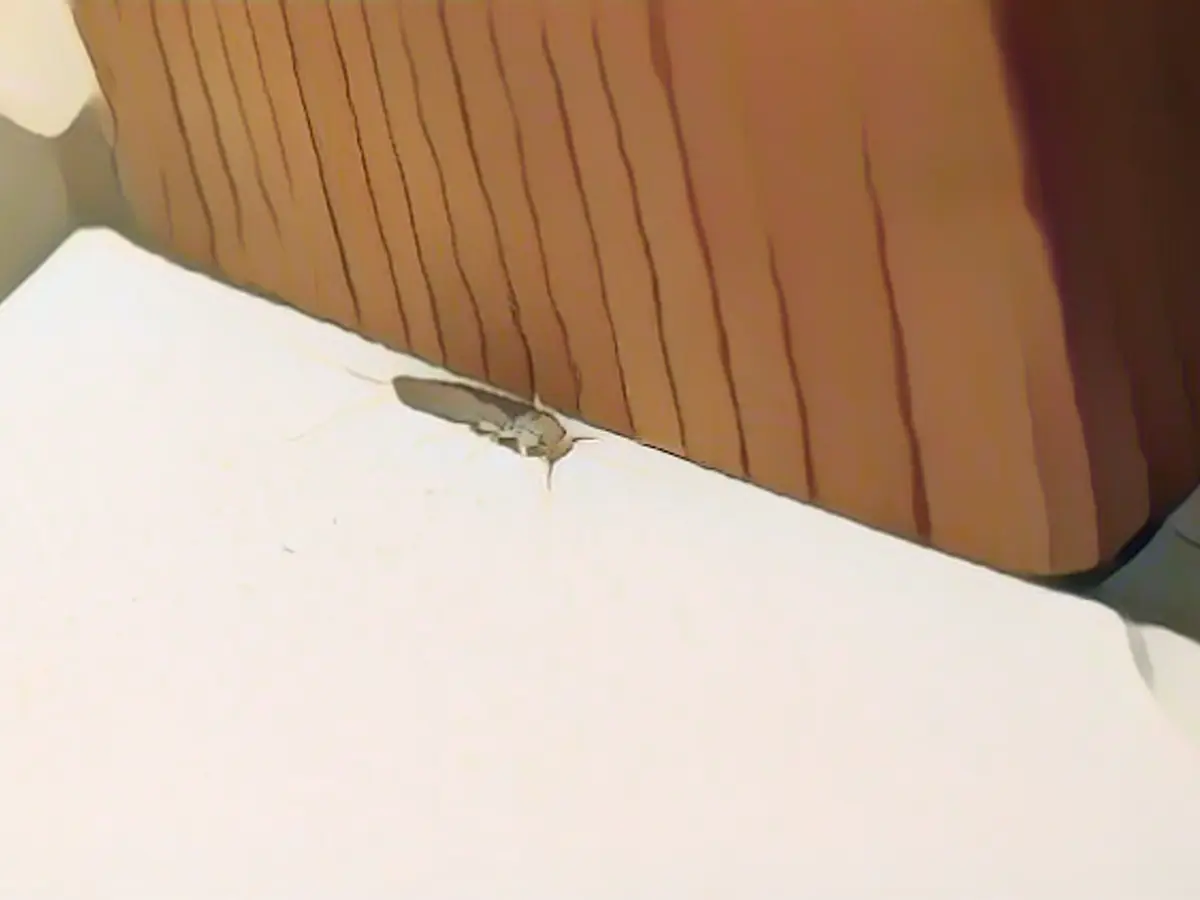Pest removal is the responsibility of the landlord
They are disgusting, they are annoying and they have to be removed by the landlord: pests in the rented apartment. Tenants should know their rights and obligations should the worst happen.
Silverfish in the bathroom, moths in the closet or ants in the living room - pests in a rented apartment are not just annoying. They also represent a defect in the rented property. The landlord is obliged to remedy the situation immediately.
When is there a pest infestation?
"There is no clear definition," says Julia Wagner from the property owners' association Haus & Grund Deutschland. A single beetle or ant does not constitute an infestation. It depends on how many specimens are observed and how often they are seen. "With rats, mice, wasp or pigeon nests in the house or on the balcony, however, the matter is clear: this is pest infestation."
"For example, the local court found that moths in a rented apartment constitute a significant pest infestation if seven to eight specimens are removed every week when cleaning and there are usually between 20 and 30 stains from dead moths on the walls," says Jutta Hartmann from the German Tenants' Association. "According to case law, 10 to 15 silverfish in the apartment are also a defect, but the occasional and intermittent presence of silverfish is not."
What must tenants do if they discover pests in their apartment?
"The landlord is responsible for removing the pests, as this is basically a defect in the rented property," says Jutta Hartmann, spokesperson for the German Tenants' Association. "The tenant must inform their landlord immediately if they discover a pest infestation."
Should the tenant first try to get to grips with the pests on their own?
They can try if there are only a few pests. "A spider or two silverfish are certainly no reason to inform the landlord," says Jutta Hartmann.
However, if the tenant does not report a larger infestation, they are generally liable for any resulting damage, for example if a rat nibbles on the electrical wiring or the brickwork is damaged by insects.
Who pays for the removal of the damage?
In principle, the landlord is liable. "Pest control is part of his maintenance obligation," says lawyer Thomas Pliester from the Tenancy Law and Real Estate Working Group of the German Bar Association.
However, if it is clear that the pests were attracted or brought in by the tenant, the tenant must pay for the damage. This is because tenants are obliged to keep the apartment in a habitable condition. "However, the question of guilt is usually not clear-cut and often leads to disputes between the parties," says Pliester.
"If it can be clearly proven that the tenant brought bedbugs with them from a vacation trip, for example, they must also bear the costs of pest control," says Julia Wagner.
Can the landlord later pass the costs on to the tenant as operating costs?
"No, these are acute maintenance costs that cannot be passed on to the tenant," clarifies Thomas Pliester. The situation is different if the landlord takes regular, preventative measures against pests, for example against rats in the cellar. These costs can be passed on to tenants as other operating costs if this has been expressly agreed in the tenancy agreement.
Does a pest infestation justify a rent reduction?
In principle, it is a defect that entitles the tenant to reduce the rent until the damage has been rectified. "How high the rent reduction can be is assessed differently by the courts," says Julia Wagner. It depends on the extent to which the use of the apartment is restricted.
"Tenants should assess this realistically," says Thomas Pliester. "If there are some mouse droppings on the balcony, but no mice are visible, you can't reduce the rent, even if it gives you the unpleasant impression that there are mice nearby."
What rights does the tenant have if the landlord does not fulfill his obligation to control pests?
"Then they can hire an exterminator themselves and charge the landlord for the costs," says Julia Wagner.
Read also:
- This will change in December
- Attacks on ships in the Red Sea: shipping companies avoid important trade route
- Houthi rebels want to launch further attacks despite international coalition
- USA forms military coalition against Houthi attacks on ships in the Red Sea
- As a responsible landlord, they should ensure that pest control measures are taken in the apartment, considering the concerns of their Consumers who live there and are affected by insects like silverfish or moths.
- If a tenant notices an infestation of insects in their Apartment, they should promptly consult with their Real estate advisor to understand their rights and responsibilities, as well as the best course of action to address the issue.
- During property inspections or tests, it's crucial for landlords to look out for signs of pest infestations and take necessary steps to maintain the property in a habitable condition for their tenants, preventing issues that could result in additional expenses for both parties.
Source: www.ntv.de







